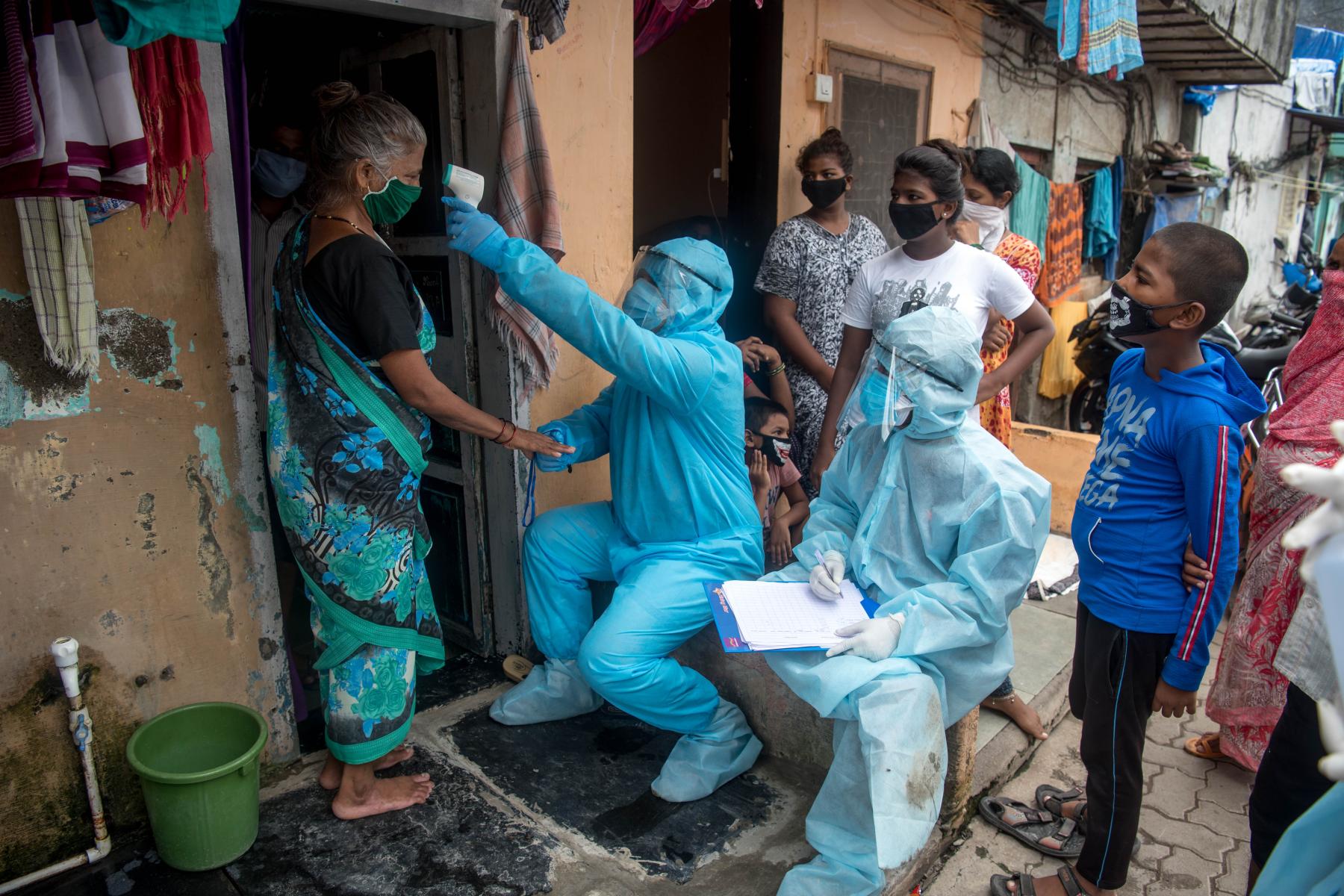
Poor countries have become a global lab for the experiments of companies and humanitarian organizations
Crises after crisis are rolling over us these years. Covid, climate, hunger, energy. But our established policy solutions don't really seem to work, and at the same time we have a hard time navigating situations we haven't faced before. This leads us to embrace experimental politics. This is true in the West, where experimental solutions are becoming more and more important. But it is also very much the case in the Global South, which has become a kind of global laboratory for the tech industry, the pharmaceutical industry, and the major humanitarian foundations and organizations. Here they have free rein to test their experimental technologies and policies with major democratic problems and inequality as a consequence. This is the analysis in a new book "The Global Lab – Inequality, Technology and the Experimental Movement" by senior researcher Adam Moe Fejerskov.
- We are facing a series of crises that we have not experienced before in our lifetime. The way they interact with each other makes them difficult for us to deal with. We are forced to make political choices in situations with high levels of uncertainty and ignorance. One such crisis is the increase in extreme poverty in Africa. Despite decades of development cooperation, things are going the wrong way. It is not that development aid has failed. But the increasing poverty and lack of development in the world's poorest countries challenge the existing paradigms around development because they have not delivered. This makes room for new ideas, and this is where the experiments come in, explains Adam Moe Fejerskov.
Distrust of the state
One example of this kind of experimentation can be found in Kenya. Here, the organization GiveDirectly is undertaking huge experiments, where tens of thousands of poor people receive money directly from the organization. The experiment is structured much like a classic laboratory experiment with an experimental group and a control group. That is, people in one area receive a lot of money - perhaps more than they would earn in a lifetime – while people in the control group in the same area get nothing. And then you see what works and what doesn't work.
- Basically, it is a very good principle to assume that people in need know best what they need money for. But these types of experiments come with all kinds of problems. Firstly, there is a question of legitimacy. By what right does an organization like GiveDirectly conduct such experiments? What voice do they give to the people they want to help? How do they ensure democratic inclusion? How do they avoid creating inequalities between those who receive money and those who don't? Such considerations are only to a very limited extent included in their experiments, says Adam Moe Fejerskov.
-But it is not just at the practical level that these experiments have problems. Underlying the experiments are also a specific set of ideas about how we create progress in the world. When you say that development today is merely a question of giving money directly to people, it is an expression of a fundamental distrust of the state and the public institutions. That distrust is deeply inspired by some of the ideas coming from Silicon Valley today. Here you are openly against the state and its institutions in favor of a libertarian individualism, says Adam Moe Fejerskov.
Experiments become commonplace
Another example is the globalization of clinical pharmaceutical trials, where large pharmaceutical companies conduct tests of new drugs. However, because many health systems in the Global South are extremely weak and cannot provide the necessary treatment, the experimental drugs in practice become the only possible treatment.
-The combination of weak health systems and companies doing experiments means that the experimental becomes the rule - even though it was meant to be the short-term exception. The experimental becomes everyday life. It's not just the pharmaceutical companies' fault. It's also very much a result of the failure we've had in supporting and building health care systems in the Global South. There is very limited interest in that kind of long-term development anymore. Instead, the focus is on individual assistance, such as the development or delivery of a certain type of vaccine. In this way, the focus is shifted to individual support within selected areas instead of focusing on long-term development work, says Adam Moe Fejerskov.
Politics rendered obsolete
That experiments shift the focus away from long-term state-building in favor of solutions at the individual level is also related to the fact that the experiments focus on what can be measured in numbers. State-building and the development of good governance are examples of very complex processes that can be difficult to measure in a spreadsheet. In contrast, it is much easier to measure whether a new treatment is working, or whether it helps to give money directly to a family. According to Adam Moe Fejerskov, this altered focus helps to promote certain types of knowledge and exclude others.
- The experimental regime has a belief that you can create an objective system in which numbers reveal the right policy, and thus there is no need for political processes. This has a major impact on who defines politics and political issues. If all policy is to be conducted on the basis of mathematical knowledge, then certain types of science - and therefore certain people – will control the agenda. Some knowledge is seen as legitimate and everything else is outside. This is a very anti-democratic way of conducting politics that clearly determine who should be heard and who should not be heard in the search for political solutions, says Adam Moe Fejerskov.
Politics of avoidance
One of the problems is that the experimental leads to a special kind of knowledge and thus some limited political understandings. Another problem is that, in today's crises, we often find ourselves in situations that we do not know how to handle. In such situations, we are more likely to engage in political experiments with unknown effects. The experiments come to serve as a "solution" when politicians do not dare to make the necessary choices. The climate crisis is a good example of this dynamic.
- The climate crisis is first and foremost a political question, but we approach it with an extreme degree of experimentality. One third of the reductions needed to reach the Paris target should come from experimental technologies. But we have no idea what these technologies look like or whether they are effective. Technology becomes a form of politics of avoidance. We dare not press the policy buttons required to make certain slowdowns or changes in our industry and energy systems. Therefore, we hope that the technologies will solve it for us. In this way, we leave not only our own, but the future of the entire planet to the politics of experimentation.




